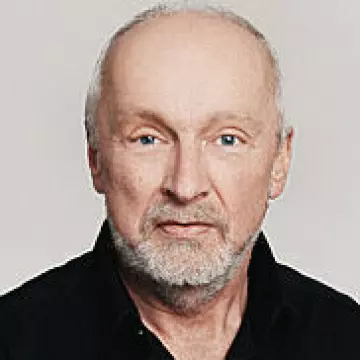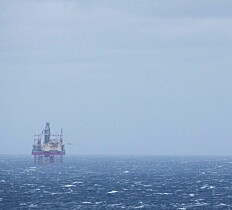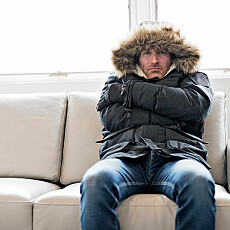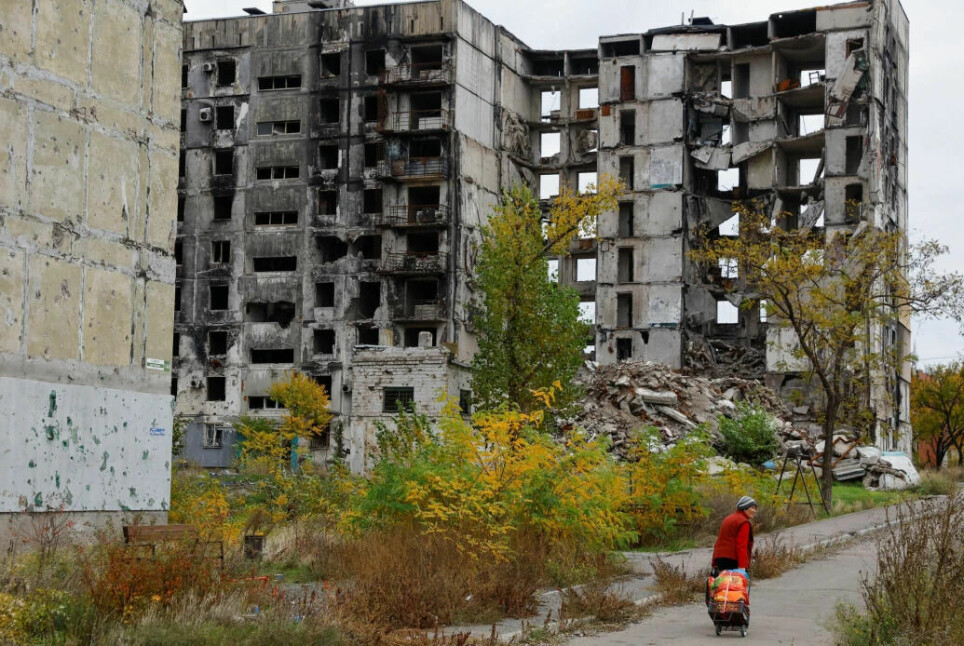
Should Norway give away the billions of dollars made in profits from the war in Ukraine?
Never before has Norway made as much money from gas and oil exports as now.
In 2022, the Norwegian state will earn close to NOK 1,200 billion from petroleum sales - roughly 114 billion USD. That is 880 billion NOK more than the year before – when there was no war in Ukraine.
Norway's war profits are enormous.
Should the country therefore share them with others?
If so, should Norway share the profits with the Ukrainians who have to rebuild their country after the war? Or perhaps share them with the citizens of the EU countries who have paid for most of it and who are now struggling to get through the winter? Or should the extra money from the sale of fossil energy be used to speed up the green shift we all need to go through to save the climate?
The largest Nordic economics festival KÅKÅnomics in Stavanger discussed this topic last week across several arenas.
The participants who took part in the debate could not reach an agreement.
Embarrassing for Norway
The British magazine The Economist is known for having clear opinions. A few weeks ago, the magazine summarised what many Europeans probably think about Norway these days:
“For months, as Ukrainians have fought and Europeans shuddered at the prospect of opening their energy bills, the continent’s richest country (bar Luxembourg) has been getting conspicuously richer (…) It has become indecently so since Russia, once its rival in keeping Europe warm, turned pipelines into weapons. As the war and ensuing power crunch drag on, the sums flowing north are proving embarrassing. A place keen on its image as a force for good in the world is having to fend off charges of war profiteering.”
The Economist states that every single Norwegian could have been written a check for a couple hundred thousand kroner each, just from this year's extra war profits.
Nevertheless, the British journal reminds us that Europe would much rather buy its gas from Norway than from authoritarian states such as Russia.
Billions and more billions
Many people and many countries are now losing a lot of money from the war in Ukraine.
Only one country is earning massive amounts.
It's Norway.
“Never before have we seen such a high income from oil and gas to Norway as we are seeing now,” Lars-Henrik Michelsen said during KÅKÅnomics in Stavanger. He is the director of the Norwegian Climate Foundation.
The most we have ever earned before was NOK 550 billion in 2008, the year of the financial crisis.
Now in 2022, the Ministry of Finance estimates that revenues will be NOK 1,200 billion.
In 2023, they could be NOK 1,400 billion.
Share with others
“This money largely comes from individuals and companies in Europe who now pay a lot extra for their gas,” Michelsen continued.
He made this appeal:
“We live in extraordinary times, which means that we also have to share the extraordinary income we get with others.”
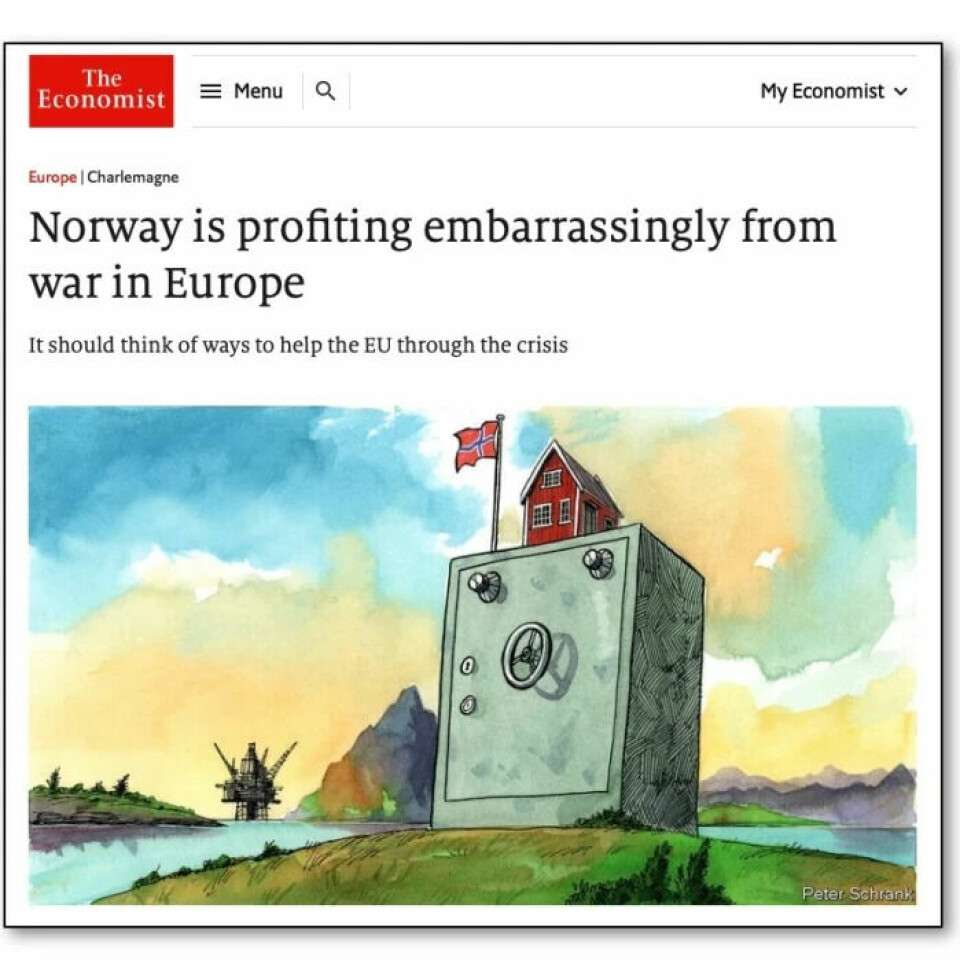
Wrong way of thinking
Torfinn Harding is professor of economics at the University of Stavanger.
“I think it would be wrong to think that now we have this extra income because of the war and that means we have to give more away,” he said.
“There are many good reasons to give more money away, whether it is about helping refugees or contributing to the development of Ukraine or helping other European countries,” he continued. “But shocks to income and assets are something we get all the time. The oil fund lost NOK 1,700 billion in the first half of this year. Shocks happen all the time.”
“The construction of the oil fund enables us to shield the Norwegian economy from these things," the professor said. "Even without the extra income we have on gas now, we have plenty of muscle to help neighbours in need.” he said.
The EU has been irresponsible
Jon Hustad, author and journalist in the newspaper Dag og Tid, believes that the extraordinary income Norway now receives comes from the fact that Norway has been responsible, and the EU has been irresponsible.
Hustad points out that the EU has been a driving force behind today's spot price sales, where the price of gas is set from day to day and fluctuates widely. The alternative would have been for the EU countries to sign long-term agreements with Norwegian companies for the purchase of gas at fixed prices, as Norway has wanted in the past.
“Two years ago, the last fixed price agreement Norway had with the EU on the sale of gas expired. After that, we have only sold gas at the spot price,” Hustad said in Stavanger. “The EU has made its own bed. Now they have to lie in it.”
Ukraine is in urgent need of help
Lars-Henrik Michelsen of the Norwegian Climate Foundation believes something completely different:
“When people look at what expenses they themselves have and what income Norway receives, we are an obvious target the day when someone finds out that if there is one country in the world they should go to court against, yes, it is that country which now has NOK 12,500 billion on the books in its oil fund.”
He went on to point out that Ukraine now has an urgent need for money for reconstruction.
“We must also help our partners in Europe bring about the green shift. We can of course discuss the details of how this should take place. The important thing is that we use some of our extra war profits to help others,” he said.
Involuntary war profiteer
Kalle Moene, who is a professor at the Department of Economics at the University of Oslo, also participated in KÅKÅnomics.
During another seminar in Stavanger, he reminded the audience that Norway has involuntarily become war profiteers.
“We have done nothing to receive this extra money. And we of course do not want the war in Ukraine,” he said.
Nevertheless, Moene argues that these extra profits should not be put into the oil fund.
“There is increasing distress in many countries due to high energy prices. We should put this money into a fund with clear instructions on what kind of wars and crises it should be used for,” he said.
Moene points to the experience of previous wars and crises, where many politicians and countries promise to help. But that only lasts as long as the TV cameras are on.
When the cameras are turned off, the money still doesn't go to those in need. Here, a large Norwegian aid fund can make a difference.
———
Translated by Alette Bjordal Gjellesvik.
Read the Norwegian version of this article on forskning.no







